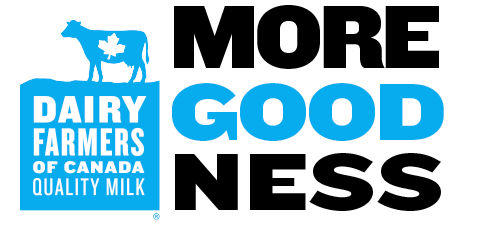Top researchers examine sustainability and the future of food
National nutrition symposia discuss the relationship between food production, nutrition and sustainability
Leading academics and researchers gather this week to shed light on the relationship between food production, nutrition and sustainability with a series of cross-Canada symposia titled, “Food Forever: Sowing the seeds for sustainable diets.” The events will take place in Edmonton, Toronto, Montreal and Moncton and are organized by the Registered Dietitians at Dairy Farmers of Canada.
Ensuring that we have a secure food supply that is both nutritious and sustainable is of great importance, as we are becoming increasingly aware of the consequences that the food we produce and consume has on the planet. According to the Food and Agriculture Organization (FAO) of the United Nations, sustainable diets are defined as those that not only have a low environmental impact but are also nutritious and socially, economically and culturally acceptable. “With the relationship between nutrition and environmental sustainability becoming more prevalent, we as health professionals have a role to play in educating the public on nutritionally adequate approaches,” said Isabelle Neiderer, registered dietitian and director of nutrition at Dairy Farmers of Canada. Academics and researchers at the symposia will look at the challenges posed in maintaining a food supply that is both nutritious and sustainable in the following presentations:
-
Sustainability of the global food supply
John D. Floros, PhD, Kansas UniversityScientific and technological developments over the last century transformed our food supply into a global, enormously complex, and extremely sophisticated system that has successfully achieved a safe, nutritious, abundant, and sustainable supply for the population. However, there is criticism on whether our modern food system will be sustainable in a few centuries, or even decades. Dr. Floros’ presentation outlines how agriculture will need to be more science and technology-focused to be sustainable.
-
Sustainable diets: Good for us, good for the planet
Brad Ridoutt, PhD, CSIRO Agriculture FlagshipWith food systems now recognized for having a major environmental impact, individuals are now seeking sustainable diets, but sustainable healthy diets should be what the population is in search of; diets that are environmentally beneficial should not be recommended if they are nutritionally deficient. However, the concept of sustainable healthy diets presents a complicated multidimensional problem, as high nutritional quality is not necessarily associated with low greenhouse gas emissions. Dr. Ridoutt’s presentation discusses this complex issue and potential solutions.
-
Food waste concerns all of us
Ralph C. Martin, PhD, P.Ag., University of Guelph, OntarioWith over 7 billion people on the planet today, and an expected 9 billion by 2050, predictions estimate that food production will have to increase by 70 – 100 per cent to keep up with the demand. However, it may be possible to mitigate the production increase. An estimated 40 per cent of food is wasted, with households accounting for approximately half of the waste. Dr. Martin’s presentation examines how reducing food waste and being aware of food’s value is a solution to this unsustainable production demand.
-
Milk production: A life-cycle analysis
Édouard Clément, eng., M.Sc.A., Groupe AGÉCOThe Canadian dairy sector operates in a fast evolving environment. Consumers are increasingly concerned about the sustainability of food products and expect Canadian companies to be responsible corporate citizens. In an effort to clarify the path towards sustainable milk production in Canada, Dairy Farmers of Canada commissioned a study, titled Socioeconomic and Environmental Life Cycle Assessment (LCA) of Canadian Milk Production. The study found that Canadian dairy farmers produce among the lowest amount of greenhouse gas (GHG) emissions per unit of milk globally. Moreover, due to efficiency gains on farm, GHG emissions from primary milk production within the Canadian dairy industry have steadily and significantly decreased during the last 30 years and account for less than 2 per cent of the country’s total carbon footprint.
-
What is the contribution of milk production on the environment? A local dairy farmer’s perspective
Canadian dairy farmers are committed to producing high-quality milk and employing high standards of care for their animals. Today’s dairy farmers are leaders of innovation and every year they invest in sustainable practices, such as the use of natural resources, animal care, traceability, food safety and biosecurity. Increasingly, dairy farmers collaborate with other professionals to improve environmental or social practices, and participate in research activities. In each of the four cities, a local dairy farmer will talk about how they work to improve sustainability on their own farm.
Dates/Times/Locations of Symposia:
Edmonton - Tuesday, October 6, 2015
8:00 a.m. – 12:30 p.m.
The Royal Glenora Club, Braemar Room
11160 River Valley Road Northwest
Edmonton, Alberta
T5J 2G7
Toronto - Wednesday, October 6, 2015
8:00 a.m. – 12:30 p.m.
Metro Toronto Convention Centre
Room 107, North Building
255 Front Street West
Toronto, Ontario
M5V 2W6
Montréal - Thursday, October 8, 2015
8:00 a.m. – 12:30 p.m.
Centre Mont-Royal
Auditorium
2200 Mansfield Street
Montreal, Quebec
H3A 3R8
Moncton - Friday, October 9, 2015
8:00 a.m. – 12:30 p.m.
Moncton Wesleyan Celebration Centre
Life Centre Auditorium
945 St. George Blvd.
Moncton, New Brunswick
E1E 2C9
About Dairy Farmers of Canada
Dairy Farmers of Canada (DFC) is the national policy, lobbying and promotional organization representing Canada’s farmers living on over 10,950 dairy farms. DFC strives to create stable conditions for the Canadian dairy industry, today and in the future. It works to maintain policies that foster the viability of Canadian dairy farmers and promote dairy products and their health benefits.
Media Contact
Ashlee Smith
Dairy Farmers of Canada
613-240-3881
ashlee.smith@dfc-plc.ca




